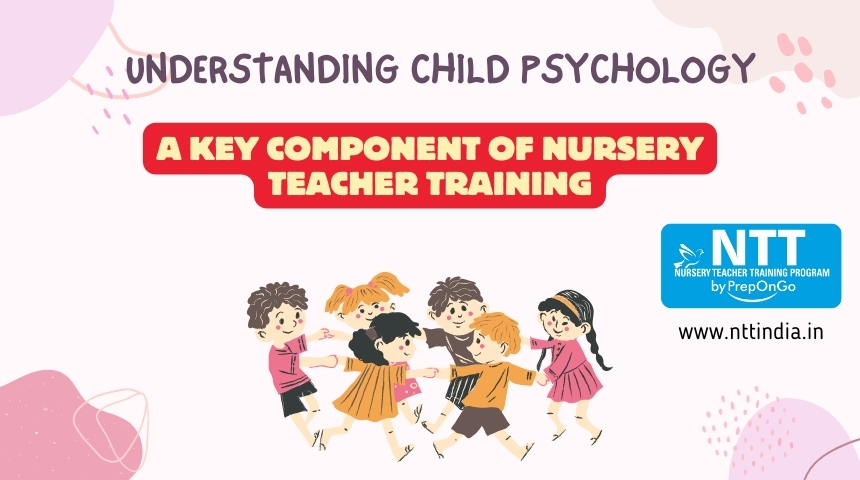Understanding Child Psychology: A Key Component of Nursery Teacher Training

Understanding child psychology is crucial for nursery teachers, as it enables them to create a supportive and effective learning environment. By comprehending how children think, feel, and behave, teachers can tailor their approaches to meet the unique needs of each child. Here’s why understanding child psychology is a key component of nursery teacher training.
1. Promotes Effective Teaching Strategies
Understanding child psychology helps nursery teachers develop effective teaching strategies. Knowledge of cognitive development stages allows teachers to design activities that are age-appropriate and engaging. For instance, younger children learn best through play and hands-on activities, while slightly older preschoolers might benefit from more structured tasks.
2. Enhances Classroom Management
Effective classroom management is essential in a nursery setting. By understanding the psychological needs and behaviors of young children, teachers can implement strategies that promote positive behavior and reduce disruptions. For example, knowing that toddlers have short attention spans can help teachers plan shorter, more varied activities to keep them engaged.
3. Supports Emotional Development
Emotional development is a critical aspect of early childhood education. Teachers who understand child psychology can better support children in managing their emotions and developing social skills. Recognizing signs of anxiety or frustration allows teachers to intervene appropriately, helping children navigate their feelings in a healthy way.
4. Identifies Special Needs Early
Early identification of developmental delays or special needs is crucial for providing timely support. Teachers trained in child psychology are better equipped to recognize signs of developmental issues, such as speech delays or social difficulties. Early intervention can significantly improve outcomes for children with special needs.
5. Fosters Positive Relationships
Building positive relationships with children is foundational to effective teaching. Understanding child psychology helps teachers connect with their students on a deeper level, fostering trust and security. When children feel understood and supported, they are more likely to engage in learning and exhibit positive behavior.
6. Informs Parental Guidance
Nursery teachers often work closely with parents, providing guidance and support. Understanding child psychology equips teachers to offer informed advice on child-rearing practices, developmental milestones, and addressing behavioral concerns. This collaboration between teachers and parents ensures a consistent approach to the child’s development.
7. Adapts to Individual Learning Styles
Each child is unique, with individual learning styles and preferences. Knowledge of child psychology helps teachers identify these differences and adapt their teaching methods accordingly. For example, some children might be visual learners, while others learn better through auditory or kinesthetic activities. Adapting to these styles enhances the overall learning experience.
8. Promotes Inclusive Education
Understanding child psychology is vital for creating an inclusive classroom environment. Teachers can use their knowledge to ensure that all children, regardless of their backgrounds or abilities, feel valued and included. This approach promotes diversity and helps all students succeed.
Conclusion
Understanding child psychology is an indispensable part of nursery teacher training. It enhances teaching effectiveness, supports emotional and social development, and fosters positive relationships between teachers and students. By incorporating child psychology into their training, nursery teachers can create nurturing and stimulating environments where young children can thrive.
For nursery teachers, continuous learning and application of child psychology principles can make a profound impact on their teaching methods and the overall development of their students.
